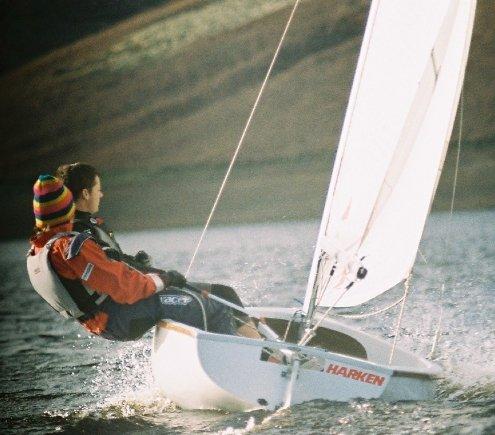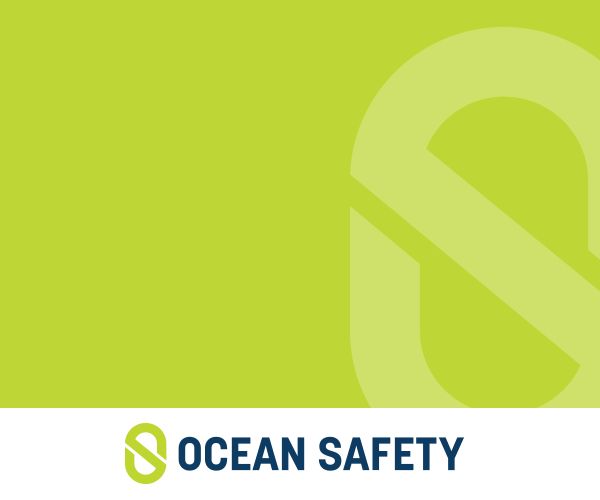Extreme 40 crash decision |
Post Reply 
|
Page <1 23456 9> |
| Author | |
Quagers 
Far too distracted from work 

Joined: 24 Oct 06 Location: United Kingdom Online Status: Offline Posts: 279 |
 Post Options Post Options
 Quote Quote  Reply Reply
 Topic: Extreme 40 crash decision Topic: Extreme 40 crash decisionPosted: 12 Aug 11 at 8:48pm |
|
So you would have DSQ'd both Art and Roth?
|
|
 |
|
Scooby_simon 
Really should get out more 
Joined: 02 Apr 04 Location: United Kingdom Online Status: Offline Posts: 2415 |
 Post Options Post Options
 Quote Quote  Reply Reply
 Posted: 12 Aug 11 at 9:18pm Posted: 12 Aug 11 at 9:18pm |
No DSQ Roth for not avoiding the collision. Roth sailed poorly and that resulted in the colission.
|
|
|
Wanna learn to Ski - PM me..
|
|
 |
|
Quagers 
Far too distracted from work 

Joined: 24 Oct 06 Location: United Kingdom Online Status: Offline Posts: 279 |
 Post Options Post Options
 Quote Quote  Reply Reply
 Posted: 12 Aug 11 at 10:30pm Posted: 12 Aug 11 at 10:30pm |
|
That doesn't exonerate Art though? You said yourself that Roth should have started avoiding when Art starts to tack, if that was the only way to avoid collision then Art has tacked too close because Roth shouldn't need to start to take action until the tacking boat has reached close hauled.
|
|
 |
|
JimC 
Really should get out more 

Joined: 17 May 04 Location: United Kingdom Online Status: Offline Posts: 6662 |
 Post Options Post Options
 Quote Quote  Reply Reply
 Posted: 12 Aug 11 at 10:46pm Posted: 12 Aug 11 at 10:46pm |
|
Damn guys: how clear a case of tacking in someone's water do you need?
GE had Artemis pinned on the tack they were on: unable to tack before GE without infringing. I believe its a fairly standard match racing tactic. It happens to me from time to time club racing in the Canoe - have to go a distance beyond the windward mark because there's a boat behind and to windward that I won't clear in the time it takes me to *reliably* tack the canoe and get up to speed. |
|
 |
|
Rupert 
Really should get out more 
Joined: 11 Aug 04 Location: Whitefriars sc Online Status: Offline Posts: 8956 |
 Post Options Post Options
 Quote Quote  Reply Reply
 Posted: 12 Aug 11 at 11:28pm Posted: 12 Aug 11 at 11:28pm |
|
Quite agree Jim - even happens in Fireflies, and they tack on a sixpence.
Since when can you be disqualified for sailing poorly, Scooby? And if you could be, then starboard would be binned too, for cocking the tack up. Bloody hell, I'd be thrown out of most races...
|
|
|
Firefly 2324, Puffin 229, Minisail 3446 Mirror 70686
|
|
 |
|
laser4000 
Really should get out more 
Joined: 02 Aug 05 Online Status: Offline Posts: 589 |
 Post Options Post Options
 Quote Quote  Reply Reply
 Posted: 12 Aug 11 at 11:35pm Posted: 12 Aug 11 at 11:35pm |
No I think it proves how hard is to make a firm decision from just on viwepoint, especially if you don't have a huge amount of experience handling those boat types... |
|
 |
|
rb_stretch 
Really should get out more 
Joined: 23 Aug 10 Online Status: Offline Posts: 742 |
 Post Options Post Options
 Quote Quote  Reply Reply
 Posted: 13 Aug 11 at 8:31am Posted: 13 Aug 11 at 8:31am |
I posted the link as for me the debate is not about tacking in water, but the fact that it looked like an avoidable collision. The protest outcome seems to encourage collision as a way to demonstrate you were in the right. This is bad news for big boat sailing where collisions run the risk of injury and potentially death. Not knowing Extreme 40 there appears to be two scenarios: 1. Extreme 40s routinely take that long to tack. In this case the video makes it look like R was trying to make a point of the being tacked on and was pushing their luck to demonstrate there was a collision course and that actually resulted in a collision. I would have hoped that racing rules and protest committees would encourage the situation where R would know they were on collision course at the start of the situation, they could have taken avoiding action earlier, protested and got A disqualified. 2. A fluffed their tack. In this case A started a move in good faith. Once stalled there was nothing they could do as they were dead in the water. All the ability to control the situation was with Rothschild and it looked like they were not doing everything possible to avoid a collision. You would hope that again the RRS and protest committees would encourage people to do everything possible to avoid a collision. It certainly would have been obvious if R had to dump the main, that they were taking avoiding action and hence won a protest. With either of the scenarios R does not look good, but protest committee seem to exonerate them on all accounts. That is what I don't feel comfortable with. |
|
 |
|
Stuart O 
Really should get out more 
Joined: 22 Jul 07 Online Status: Offline Posts: 514 |
 Post Options Post Options
 Quote Quote  Reply Reply
 Posted: 13 Aug 11 at 11:52am Posted: 13 Aug 11 at 11:52am |
|
Totally agree Rupert...not a tacking in water and scenario 1 very much my argument. Also Art argued that rightly so nowhere in the rules does it say that the boat has to be moving and whilst the sat not moving they where on starboard tack in a close hauled position, although moving towards Roth at about 6 knots in a sideways direction. Just to add to the mix...case was reopened and Roth also scored DSQ for failing to advoid an advoidable collision
Edited by Stuart O - 13 Aug 11 at 12:00pm |
|
 |
|
JimC 
Really should get out more 

Joined: 17 May 04 Location: United Kingdom Online Status: Offline Posts: 6662 |
 Post Options Post Options
 Quote Quote  Reply Reply
 Posted: 13 Aug 11 at 12:00pm Posted: 13 Aug 11 at 12:00pm |
I really don't know how you get there. Of course it was an avoidable collision: *THEY SHOULDN'T HAVE TACKED*. You don't tack if by doing so you create a collision situation. [added] The DSQ for EG seems pretty harsh as they started to take avoiding action while they still had right of way by the rules... I'm not sure what else they could have done from the video. Trying to luff across the bows of an accelerating boat is not a great idea, nor is a crash tack in something that big. It seems like quite a big call to suggest that attempting the duck to avoid was so much the wrong thing to do that it warrants a DSQ. Edited by JimC - 13 Aug 11 at 12:21pm |
|
 |
|
Stuart O 
Really should get out more 
Joined: 22 Jul 07 Online Status: Offline Posts: 514 |
 Post Options Post Options
 Quote Quote  Reply Reply
 Posted: 13 Aug 11 at 12:02pm Posted: 13 Aug 11 at 12:02pm |
|
sorry Jim updating post...
|
|
 |
|
Post Reply 
|
Page <1 23456 9> |
| Forum Jump | Forum Permissions  You cannot post new topics in this forum You cannot reply to topics in this forum You cannot delete your posts in this forum You cannot edit your posts in this forum You cannot create polls in this forum You cannot vote in polls in this forum |
Bulletin Board Software by Web Wiz Forums® version 9.665y
Copyright ©2001-2010 Web Wiz
Change your personal settings, or read our privacy policy
Copyright ©2001-2010 Web Wiz
Change your personal settings, or read our privacy policy
























 Printable Version
Printable Version Delicious
Delicious Digg
Digg Facebook
Facebook Furl
Furl Google
Google MySpace
MySpace Newsvine
Newsvine reddit
reddit StumbleUpon
StumbleUpon Twitter
Twitter Windows Live
Windows Live Yahoo Bookmarks
Yahoo Bookmarks Topic Options
Topic Options